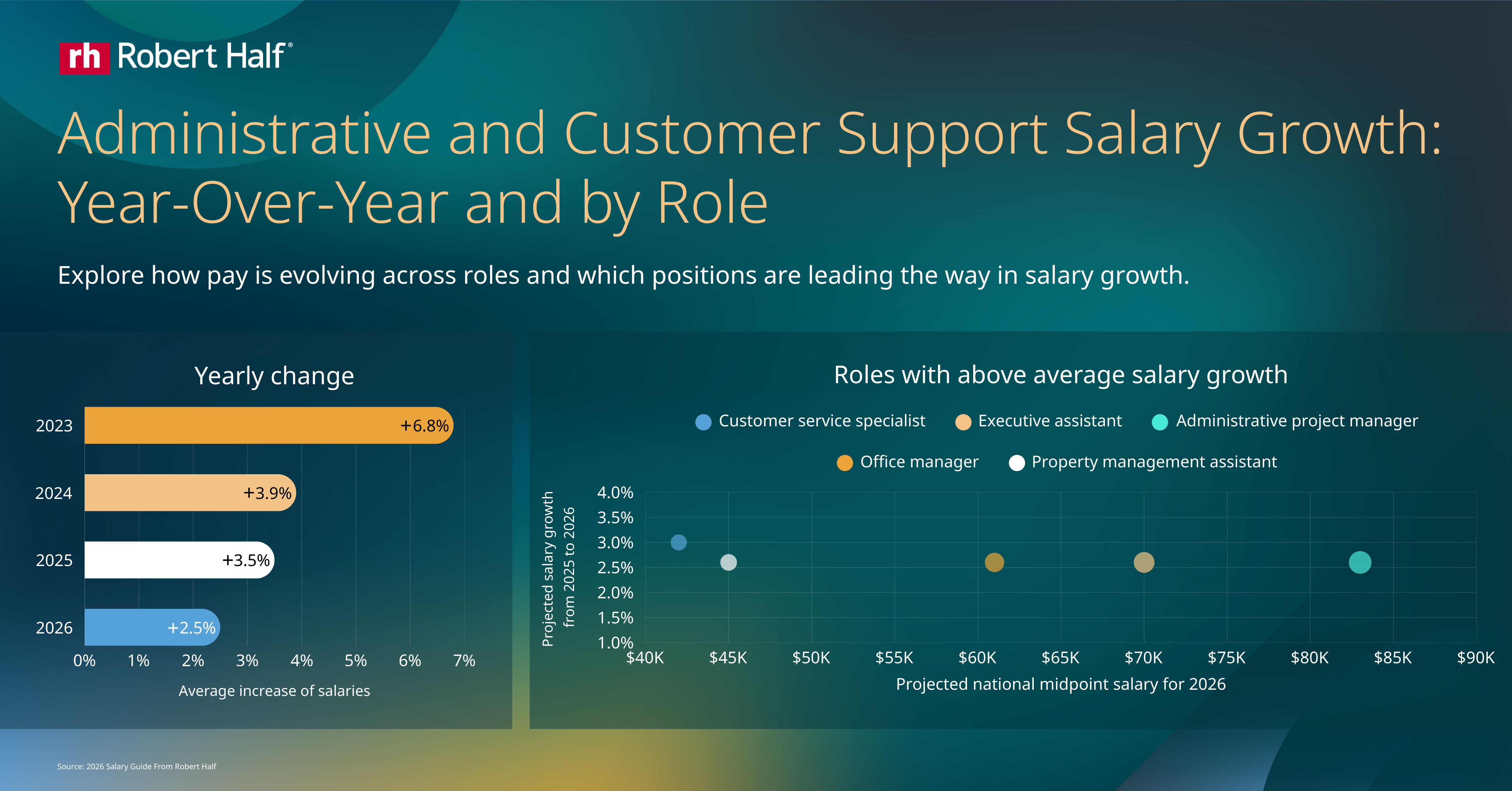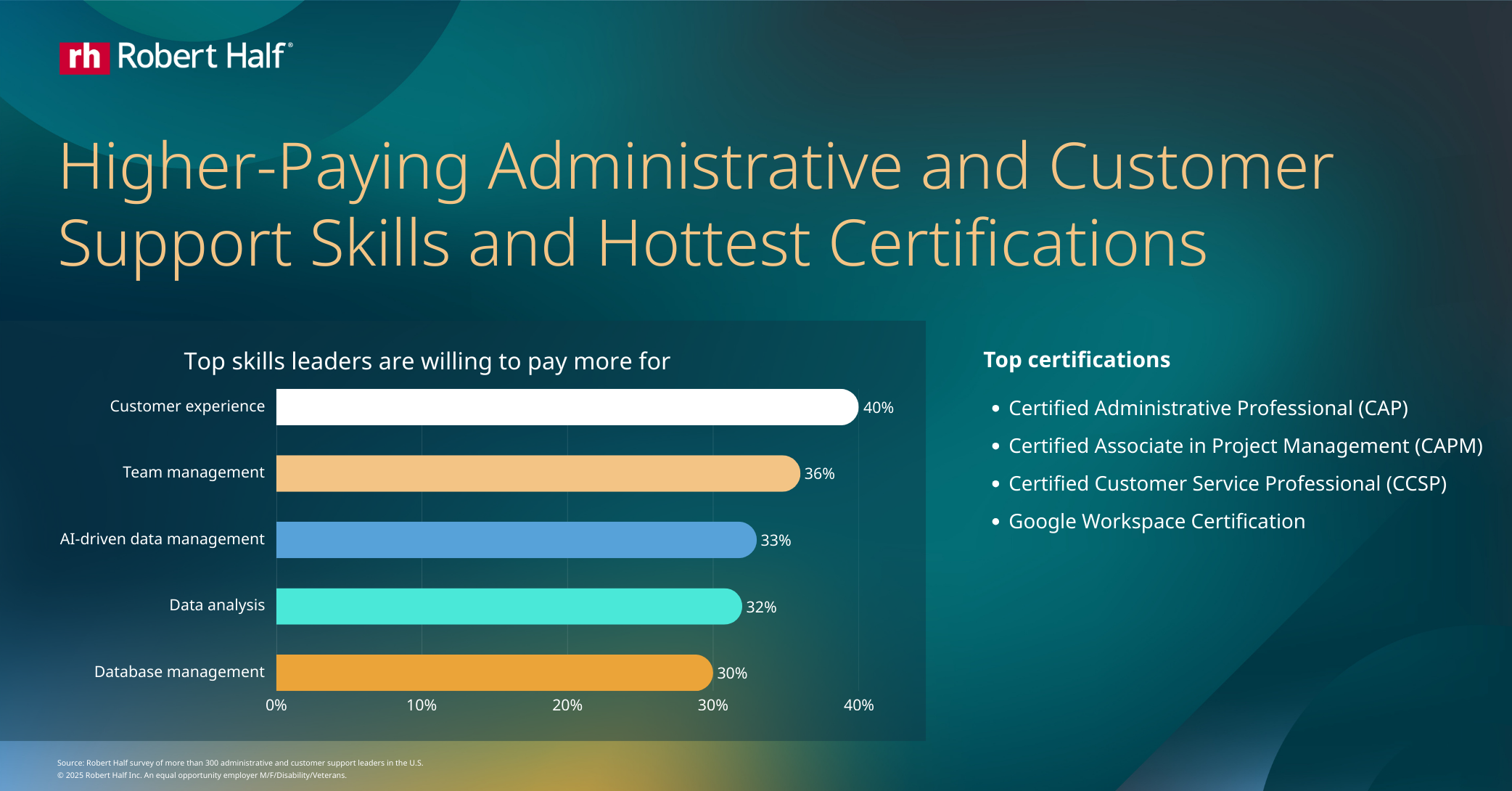Administrative and customer support salary growth in context
Looking back at recent projections shows how the market has evolved—and where new opportunities are emerging. Heading into 2026, salaries are projected to rise 2.5% on average.
While growth has slowed, it remains steady and strategic. The strongest projected gains are in customer support roles (+3.0%) and executive, administrative and property management assistant positions (+2.6%), where employers value professionals who combine service excellence with digital fluency.
The market is shifting toward specialization. Professionals with technical and analytical skills should continue to find steady opportunities, even if growth slows.
Roles driving higher salaries in administrative and customer support
Several positions stand out for above-average projected growth in 2026. These roles highlight where employers are willing to pay more and where professionals can build lasting, future-ready careers. Today’s administrative and customer service professionals aren’t just supporting operations, they’re driving them—coordinating projects, managing budgets and connecting teams, leadership and clients. The graphic below shows year-over-year salary trends and the administrative and customer support roles projected to see the strongest growth in 2026.
Emerging roles in administrative and customer support
As technology transforms operations, new hybrid positions are emerging that merge traditional support with analytics, process improvement and customer experience.
Business Intelligence Assistant: Supports data gathering and dashboard management to inform business decisions
Customer Education Specialist: Develops onboarding content and tutorials that strengthen engagement and loyalty
Data Annotation Project Assistant: Coordinates data labeling and verification for AI model training and automation initiatives
These emerging roles are still evolving, which makes salary benchmarking a challenge. Professionals who gain early experience in analytics, CRM or automation tools will be ahead of the curve when these positions become mainstream.









